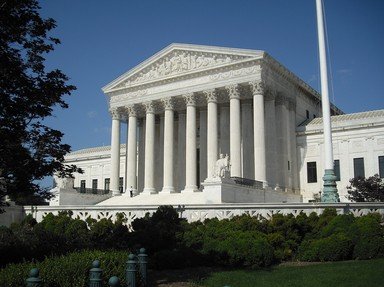Quiz Answer Key and Fun Facts
1. The case of United States v. Jones dealt with the question of whether a Global Positioning Device (GPS) placed by the government on a citizen's car was a search under the Fourth Amendment. Did the Court rule it was a search?
2. The case of Arizona v. United States dealt with the constitutionality of Arizona's law regarding the treatment of aliens in the county illegally. The Supreme Court ruled that the portions of the Arizona law at issue did in fact violate the U.S. Constitution. Which constitutional provision did the Court rely on in reaching this conclusion?
3. In the last decades of the twentieth century, it became almost commonplace for candidates for political office (and other jobs) to lie about their background. Part of this trend was a tendency to lie about military honors received. In response to this unfortunate phenomenon, Congress in 2005 enacted the Stolen Valor Act, making it a crime to make these false representations. One such culprit, Alvarez, appealed his conviction on the ground that the Stolen Valor Act violated the free speech protection of the Constitution. Did the Stolen Valor Act survive this challenge?
4. The case of FCC v. Fox Television tackled the question of whether sanctions can be imposed on a television network for obscenity on the airwaves. In ruling for the broadcasters, what constitutional ground did the court rely on?
5. The case of Judulang v. Holder involved the government's attempt to deport a long-time resident alien for past illegal conduct. Which justice, who at the time was the newest member of the court, wrote the opinion for a unanimous court?
6. In the case of Miller v. Alabama, the court considered whether a mandatory sentence of life imprisonment without the possibility of parole was permissible for juvenile homicide offenders. In ruling that this sentencing scheme was cruel and unusual punishment, which amendment to the U.S. Constitution was the decision based on?
7. The Supreme Court's long-awaited decision on the Affordable Care Act, often called Obamacare, was finally announced in June of 2012. What did the court rule?
8. In Smith v. Cain, the court reversed the conviction of defendant Juan Smith because of what misconduct on the part of the Orleans Parish District Attorney's Office?
9. When a fringe group from Kansas picketed at the Maryland funeral of a soldier who had died in the Iraq war, on the absurd notion that dead soldiers were God's retribution on the U.S. for its toleration of homosexuality, the deceased soldier's father sued for intentional infliction of emotional distress. Did the court rule that the picketers' speech was protected by the First Amendment?
10. Mandatory jail strip searches was the subject of the case of Florence v. County of Burlington. What was the result of this 5-4 decision?
Source: Author
chessart
This quiz was reviewed by FunTrivia editor
stedman before going online.
Any errors found in FunTrivia content are routinely corrected through our feedback system.
